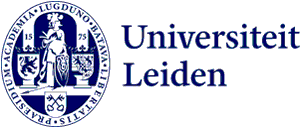
Restricting student numbers will cost society billions
A cap on the number of international students at the five broad-based Randstad universities will have a drastic effect on the Dutch economy. The gross domestic product (GDP) is expected to decline by approximately 4 to 5 billion euros. Regions, businesses and society as a whole will feel the consequences.
The Randstad region, which accounts for half of the Dutch GDP – the country’s economic value – will be hit hardest: 82% of the loss will occur here. The most affected sectors will be business services (39%), financial institutions (20%) and the public sector (10%). These are the findings from recent research by SEO Economic Research, commissioned by Leiden University, Utrecht University, Erasmus University Rotterdam, the University of Amsterdam and Vrije Universiteit Amsterdam.
The SEO study highlights the need for a balanced internationalisation policy, as demonstrated earlier this year by the Dutch universities in their joint self-regulation proposal. They urge political parties to incorporate these findings into the development of a National Talent Strategy that recognises how international students are essential for both the Randstand and the other regions.
International students strengthen the earning capacity of the Netherlands
International students are of great value to the Dutch economy, according to SEO Economic Research. Graduates help reduce labour shortages in sectors with high demand for highly educated professionals, including business services, finance and public sectors such as healthcare, government and education. The time that graduates stay in the Netherlands and contribute to the economy has increased in recent years. The retention rate of international students one year after graduation rose from 40% (2017–2018 cohort) to 57% (2022–2023 cohort). After five years, 25% still live in the Netherlands, and 80% of these have paid employment. Regions outside the Randstad also benefit through direct employment and supporting sectors.
Short-term savings, long-term economic damage
The cap imposed by the outgoing government on international students at the broad-based Randstad universities will result in a net annual saving of 80 to 132 million euros on a total national budget of approximately 488 billion euros. This relatively small saving – comprising education funding, student finance and social provisions (735 to 825 million euros) minus lost tax and premium revenues (603 to 745 million euros) – comes at the cost of broader economic damage. The impact on the labour market, business climate and GDP translates into a decline of 3.9 to 4.8 billion euros per year.
Business climate under pressure due to loss of international talent
The economic damage from fewer international students at the broad-based Randstad universities will affect not only the state budget and labour market but also the business climate. Previous research has shown that less international talent will further strain the Dutch business climate. Thirty per cent of companies employing many foreign knowledge workers are considering relocating growth plans or activities abroad if they cannot attract sufficient talent. This increases the risk of losing investments, jobs and innovation capacity in the Netherlands.
Negative effects for Dutch students
In addition to the economic impact, researchers also point to other negative effects of restricting internationalisation policy on the quality of education for Dutch students. With fewer international students and English-taught programmes, part of the international classroom disappears, meaning less opportunity for students to acquire international perspectives, language skills and intercultural competencies that prepare them for an increasingly global and diverse labour market and society.
About the report
The ‘Out of Balance Without Internationalisation?’ report was carried out by SEO Economic Research on behalf of the broad-based Randstad universities: Leiden University, Utrecht University, Erasmus University Rotterdam, University of Amsterdam and Vrije Universiteit Amsterdam. SEO conducts independent applied economic research commissioned by government and industry.
The report provides an objective, quantitative analysis of the economic impact of the ‘Balanced Internationalisation’ bill (Wet Internationalisering in Balans – WIB), specifically through the restriction of international student numbers at the five broad-based Randstad universities. It models various scenarios and shows the effects for the Netherlands of even a significant cap on international talent in the Randstad. The report underscores the need for a balanced internationalisation policy.
